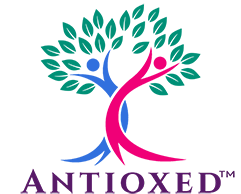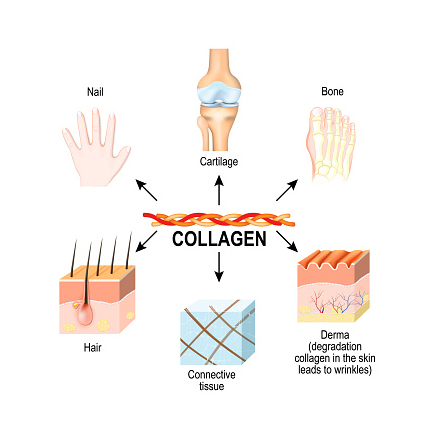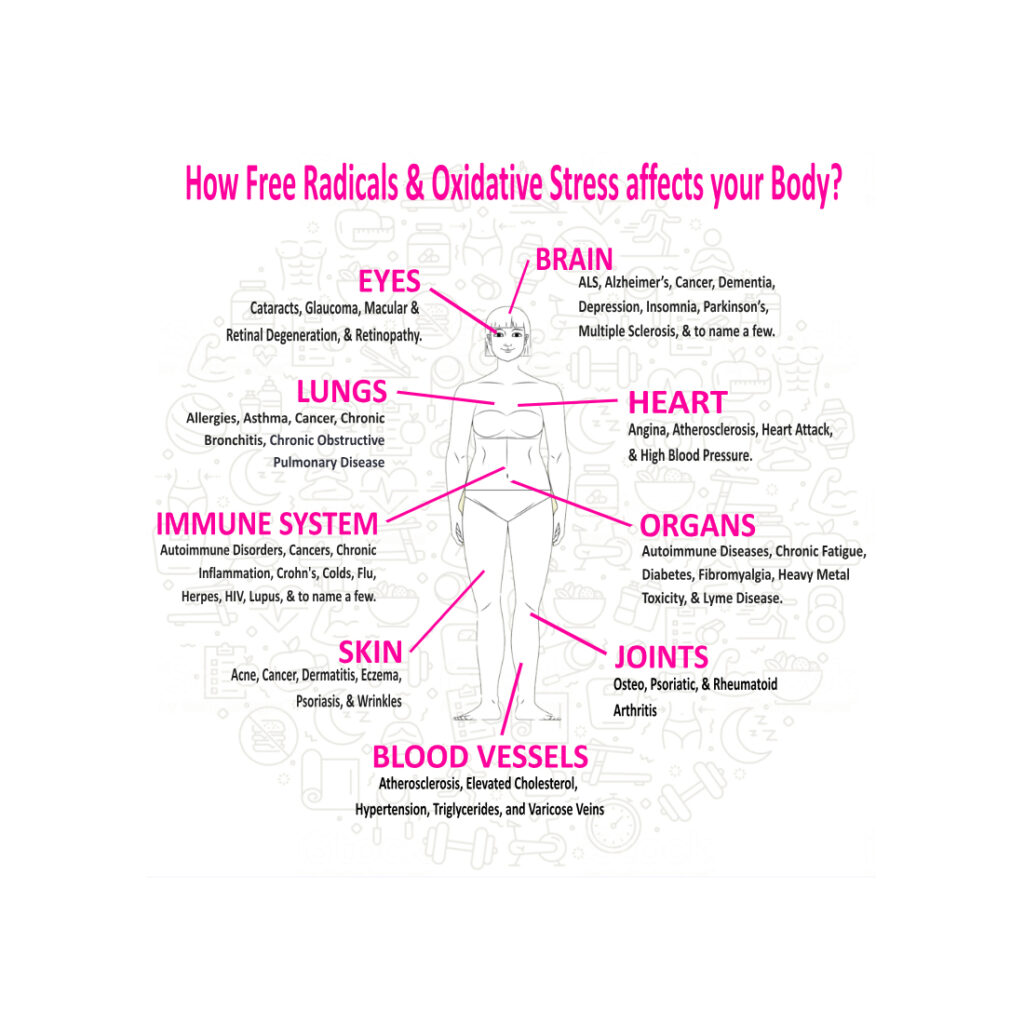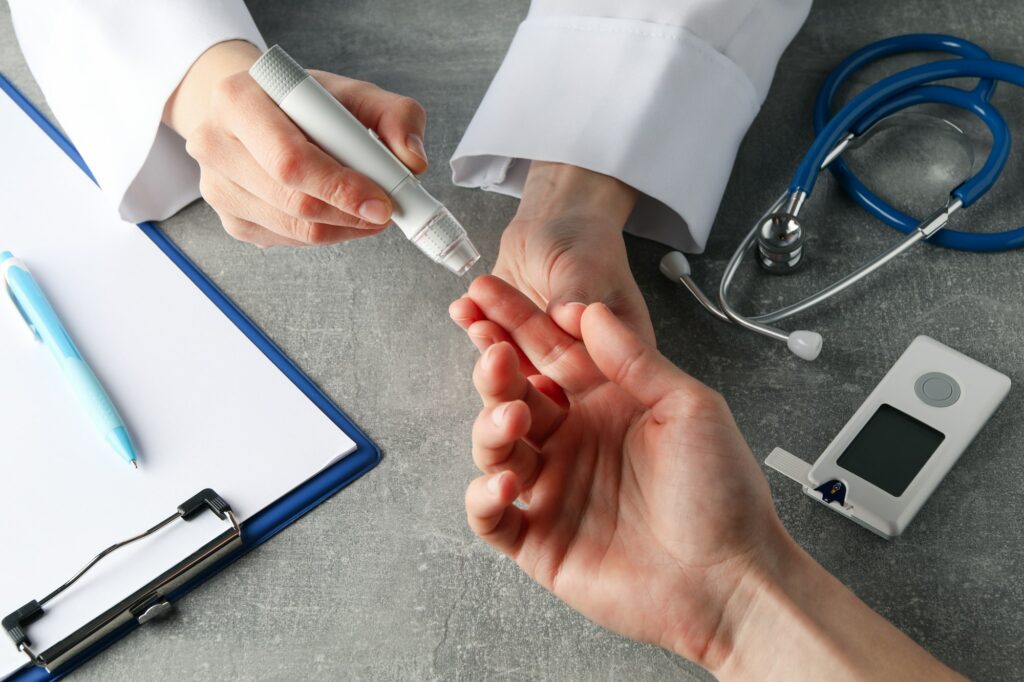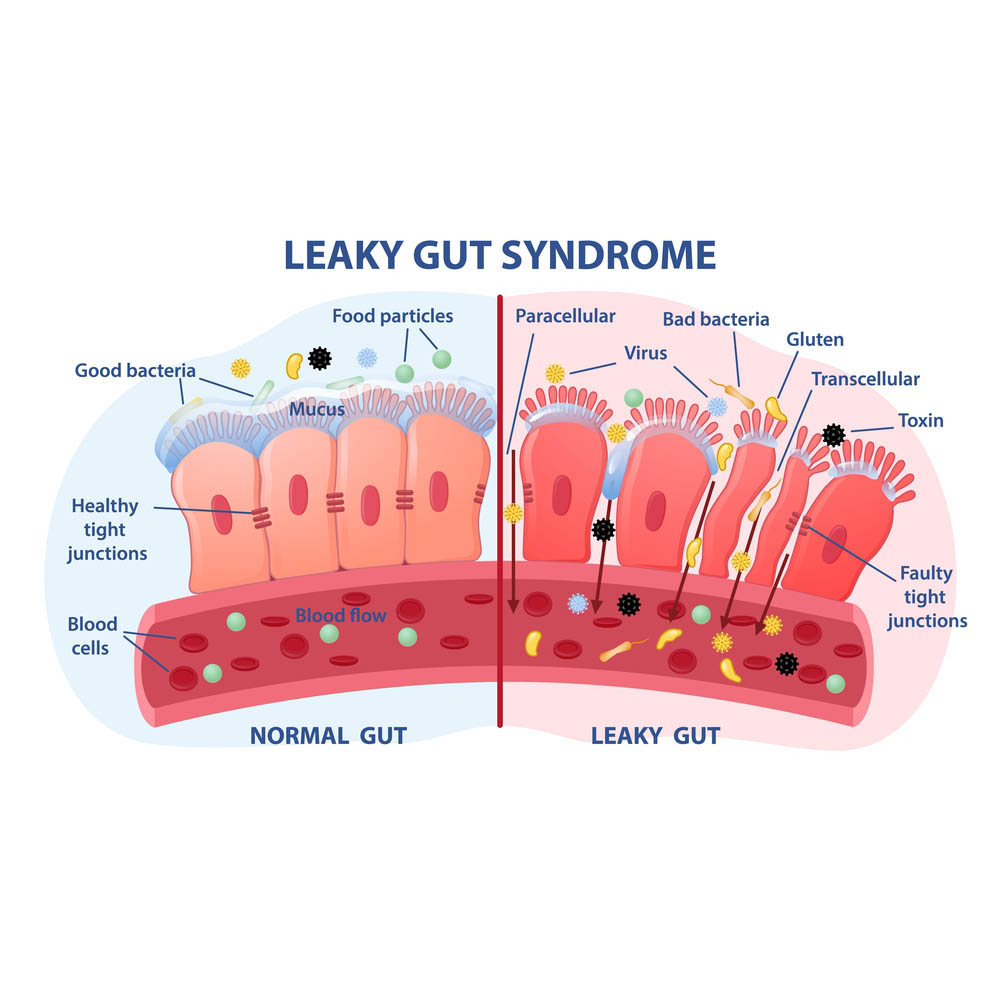Explore the Benefits of ANTIOXED
Look & Feel Better with ANTIOXED

Collagen and Your Body
Collagen, the most abundant protein in the human body, plays a vital role in maintaining the structural integrity of various tissues, including skin, bones, cartilage, and connective tissues. Beginning in our mid-twenties, we typically lose about 1.5% of collagen per year from our bodies. This gradual decline contributes to various signs of aging, such as wrinkles, decreased skin elasticity, joint pain, gut issues, and loss of bone density.
Including Antioxed in your daily regimen, along with a balanced diet and healthy lifestyle, can help maintain and improve overall health. Although there are 28 identified collagens, only 5 types are the most present in our bodies which Antioxed provides. All these types are fibrillar collagens except for Type X, which is a non-fibrillar collagen.
Fibrillar and non-fibrillar collagens serve essential roles in maintaining the structural integrity and function of various tissues throughout the body. Fibrillar collagen provides tensile strength and support in tissues like skin, bones, and cartilage, while non-fibrillar collagens play crucial roles in cell adhesion, filtration, and tissue integrity.
Type I Collagen: This type of collagen is the most abundant, totaling approximately 80% of the collagen in your body, and is found in bones, skin, tendons, and ligaments.
Type II Collagen: It possesses exceptional properties that promote healthy joints and cartilage, which is the connective tissue that cushions joints. All while supporting the immune system and digestive function by effectively repairing and reinforcing the gut lining.
Type III Collagen: This type of collagen is found in the skin, muscles, and blood vessels, and it provides support and elasticity. This is the 2nd most abundant collagen in your body totaling 5 – 20% of your totals depending on age.
Type V Collagen: This type of collagen is found in the placenta and it is also found in small amounts in tissues such as skin and tendons.
Type X Collagen: This type of collagen is found in the growth plates of bones and is important for bone growth and development.
Type IV Collagen: This type of collagen is found in the basement membrane of cells (lower level) and helps to maintain the structure of tissues. Although this collagen type is not present in Antioxed, Vitamin C and Zinc promote your body to synthesize and maintain type IV collagen within your body.
Click to enlarge:
Antioxed’s Type I & III collagen comes from grass-fed, pasture-raised bovine, while our type II collagen comes from deep sea, wild-caught cod, and chicken bone broth coming from farm-free chickens. The eggshell membrane from BiovaFlexR is a natural and bioavailable source of Type V and X, and some from Type I. BiovaFlexR has been clinically proven for reduced pain, increased activity/mobility, and a reduction of stiffness with their patented water-soluble eggshell membrane that has been clinically tested and shown to improve motion range by 15%, reduce lower back discomfort within 5 days, a 5x reduction in stiffness, and a 4x increase in activity levels and ease of performing daily all while promoting healthy skin, hair, and nails due to its collagen and elastin content.
Health Benefits of Collagen
Skin Health
- Role: Collagen is vital for skin elasticity, hydration, and overall appearance. It helps maintain the skin’s structure, reducing wrinkles and dryness.
- Research: A study published in the Journal of Medical Nutrition & Nutraceuticals found that oral collagen peptide supplementation improved skin hydration, elasticity, and reduced wrinkles in women. In a study conducted with 1,125 participants (95% women) aged between 20 to 70, it was discovered that taking hydrolyzed collagen led to enhanced skin hydration, elasticity, and a reduction in wrinkles when compared to placebo after 90 days.
Joint Health
- Role: Collagen supports cartilage, the tissue that cushions joints, potentially reducing symptoms of osteoarthritis and joint pain.
- Research: A study in the International Journal of Medical Sciences demonstrated that collagen supplementation reduced joint pain in athletes and individuals with osteoarthritis.
Bone Health
- Role: Collagen provides structural support to bones, helping maintain their strength and density.
- Research: In a study of 102 postmenopausal women with reduced BMD, it was observed that taking only 5 grams of collagen peptides per day for a year resulted in significant increases in BMD in their spines and femurs compared to placebo. A subsequent follow-up study on 31 of these women noted a progressive increase in BMD when they consumed 5 grams of collagen daily for a total of 4 years. The study found that participants’ BMD increased by 5.79% to 8.16% in the spine and by 1.23% to 4.21 % in the femur during the follow-up study.
Muscle Mass
- Role: Collagen contains amino acids that are important for muscle growth and repair, making it beneficial for maintaining and building muscle mass.
- Research: A study in the British Journal of Nutrition found that collagen peptide supplementation combined with resistance training increased muscle mass and strength in elderly men.
Gut Health (also see Gut Health Support below)
- Role: Collagen supports the gut lining, which can help improve gut health and reduce symptoms of leaky gut syndrome.
- Research: A study published in the journal Nutrients highlighted that collagen peptides help maintain the integrity of the intestinal barrier, reducing gut permeability and inflammation.
Hair and Nail Health
- Role: Collagen can improve the strength and growth of hair and nails, reducing brittleness and breakage. More details to come on these benefits.
- Research: A study in the Journal of Cosmetic Dermatology
Sexual Health (See below)
Vitalize Your Body From the Inside to the Outside With ANTIOXED
Our collagens are tested before purchase to be free from pesticides, hormones, and antibiotics. Then each production run of Antioxed is lab-tested in-house before being released to a 3rd party lab for more testing. Try it today to start your journey!
References
- Borumand, , & Sibilla, S. (2014). Daily consumption of the collagen supplement Pure Gold Collagen® reduces visible signs of aging. Journal of Medical Nutrition & Nutraceuticals, 3(1), 46-52.
- https://pubmed.ncbi.nlm.nih.gov/33742704/
- Clark, L., Sebastianelli, W., Flechsenhar, K. R., Aukermann, D. F., Meza, F., Millard, R. L., Deitch, J. R., Sherbondy, P. S., & Albert, A. (2008). 24-Week study on the use of collagen hydrolysate as a dietary supplement in athletes with activity-related joint pain. Current Medical Research and Opinion, 24(5), 1485-1496.
- König, , Oesser, S., Scharla, S., Zdzieblik, D., & Gollhofer, A. (2018). Specific collagen peptides improve bone mineral density and bone markers in postmenopausal women—a randomized controlled study. Nutrients, 10(1), 97.
- https://www.ncbi.nlm.nih.gov/pmc/articles/PMC5793325/
- https://www.ncbi.nlm.nih.gov/pmc/articles/PMC8441532/
- Zdzieblik, , Oesser, S., Gollhofer, A., König, D. (2015). Improvement of muscle strength and body composition in older men with power training and protein supplementation. British Journal of Nutrition, 114(8), 1237-1245.
- Bischoff, C., & Barbara, G. (2014). Glutamine and collagen peptides: The yin and yang of gut barrier maintenance? Nutrients, 6(6), 2583-2609.
- Hexsel, , Zague, V., Schunck, M., Siega, C., & Camozzato, F. O. (2017). Oral supplementation with specific bioactive collagen peptides improves nail growth and reduces symptoms of brittle nails. Journal of Cosmetic Dermatology, 16(4), 520-526.
- Shuster, , Black, M. M., & McVitie, E. (1975). The influence of age and sex on skin thickness, skin collagen and density. British Journal of Dermatology, 93(6), 639-643.
- Varani, J., Dame, M. K., Rittie, L., Fligiel, S. E., Kang, S., Fisher, G. J., & Voorhees, J. J. (2006). Decreased collagen production in chronologically aged skin: roles of age-dependent alteration in fibroblast function and defective mechanical stimulation. American Journal of Pathology, 168(6), 1861-1868.
- Ricard-Blum, (2011). The collagen family. Cold Spring Harbor Perspectives in Biology, 3(1), a004978.
- Fratzl, (2008). Collagen: structure and mechanics, an introduction. In Collagen: Structure and Mechanics (pp. 1-13). Springer.

Combatting Free Radicals
Antioxidants help neutralize free radicals and prevent cellular damage.
Free radicals are unstable molecules that have an unpaired electron within. This can begin a chain reaction of damage, primarily to the cellular membranes, proteins, and DNA causing various health issues. This is also known as oxidative stress which occurs when there is an imbalance between free radicals and antioxidants in the body.
When an antioxidant molecule exhibits sufficient stability to contribute an electron to a harmful free radical, it neutralizes the radical, diminishing its ability to cause more damage.
Implementing preventative measures can help to reduce the risk of oxidative stress and the development of free radicals in the body. Cells having paired electrons is a good thing.
Vitamins
Vitamin A
- Role: Supports vision, immune function, and skin health; acts as an antioxidant.
- Research: Vitamin A and its precursors, such as beta-carotene, protect against oxidative stress and support cellular health.
Vitamin C
- Role: Boosts the immune system, aids in collagen production, and acts as a powerful antioxidant.
- Research: Enhances the body’s natural defense mechanisms by neutralizing free radicals.
B Vitamins (B1, B2, B3, B6, B9, B12)
Role: Support energy production, brain function, and red blood cell formation, with some acting as antioxidants.
Research: B vitamins like B2 (riboflavin) play a role in reducing oxidative stress.
Vitamin E
Role: Protects cell membranes from oxidative damage and supports skin health.
Research: Vitamin E’s antioxidant properties help protect against chronic diseases
Minerals
Selenium
Role: Essential for antioxidant enzyme function, protecting cells from oxidative damage.
Research: Selenium is crucial in maintaining immune health and reducing inflammation.
Copper
Role: Supports enzymes that protect against oxidative stress and aids immune function.
Research: Copper is vital for maintaining cardiovascular and neurological health.
Manganese
Role: Component of antioxidant enzymes that protect cells from damage.
Research: Manganese is essential for bone health and metabolism.
Click to enlarge:
Additional Antioxidants
Coenzyme Q10 (CoQ10)
Role: Supports cellular energy production and has antioxidant properties.
Research: CoQ10 supplementation helps reduce oxidative stress and improve heart health.
Resveratrol
Role: Acts as an antioxidant, protecting cells from oxidative damage.
Research: Shows potential in reducing inflammation and protecting against cardiovascular diseases.
Grape Seed Powder
Role: Rich in antioxidants, particularly proanthocyanidins, which protect against oxidative stress.
Research: Grape seed extract has been shown to reduce oxidative stress and improve cardiovascular health.
Saw Palmetto
Role: Contains antioxidants that support prostate health and reduce inflammation.
Research: Saw palmetto extracts have been shown to improve urinary function and reduce inflammation.
Ginseng
Role: Contains ginsenosides with antioxidant properties, enhancing immune function and reducing inflammation, while having antioxidant properties.
Research: Studies show ginseng helps reduce oxidative stress and improves overall vitality.
Black Pepper (Piperine)
Role: Enhances the bioavailability of other nutrients and has antioxidant properties.
Research: Piperine increases absorption of nutrients and reduces oxidative stress.
By creating a healthy diet with a wide range of fruits, vegetables, whole grains, lean proteins, and healthy fats, scheduling regular exercise, managing stress, living a disciplined lifestyle, and supplementing with Antioxed you will have the upper hand against free radicals with its antioxidant properties. Let’s get healthy!
References
- Carr, C., & Frei, B. (1999). Toward a new recommended dietary allowance for vitamin C based on antioxidant and health effects in humans. The American Journal of Clinical Nutrition, 69(6), 1086-1107.
- https://www.hsph.harvard.edu/nutritionsource/vitamins/
- https://ods.od.nih.gov/factsheets/VitaminA-HealthProfessional/
- Traber, G., & Atkinson, J. (2007). Vitamin E, antioxidant, and nothing more. Free Radical Biology and Medicine, 43(1), 4-15.
- Littarru, P., & Tiano, L. (2007). Clinical aspects of coenzyme Q10: an update. Current Opinion in Clinical Nutrition & Metabolic Care, 10(6), 641-646.
- Baur, A., & Sinclair, D. A. (2006). Therapeutic potential of resveratrol: the in vivo evidence. Nature Reviews Drug Discovery, 5(6), 493-506.
- Rayman, P. (2000). The importance of selenium to human health. The Lancet, 356(9225), 233-241.
- https://ods.od.nih.gov/factsheets/Manganese-HealthProfessional/
- Srinivasan, (2007). Black pepper and its pungent principle-piperine: a review of diverse physiological effects. Critical Reviews in Food Science and Nutrition, 47(8), 735-748.
- Vela Navarrete, , et al. (2018). Saw palmetto extracts: an updated systematic review of clinical trials on phytotherapy for lower urinary tract symptoms in men. Current Urology Reports, 19(3), 1-9.
- Bagchi, , et al. (2000). Free radicals and grape seed proanthocyanidin extract: importance in human health and disease prevention. Toxicology, 148(2-3), 187-197.
- Wu, , et al. (2004). Arginine metabolism and nutrition in growth, health, and disease. Amino Acids, 26(4), 293-311.
Enhancing Male Sexual Health
Sexual health is a critical aspect of overall well-being for men, influencing physical health, emotional stability, and relationship satisfaction.
Various vitamins, minerals, and antioxidants, including the amino acids in collagen, play significant roles in supporting and enhancing men’s sexual health.
Vitamins
Vitamin C
Role: Vitamin C enhances blood flow by supporting the production of nitric oxide, which relaxes blood vessels. It also reduces oxidative stress, protecting sperm from damage.
Research: Studies indicate that vitamin C improves endothelial function, which is crucial for erectile performance.
Vitamin D
Role: Vitamin D is essential for maintaining healthy testosterone levels, which are crucial for libido and erectile function.
Research: Men with adequate vitamin D levels are less likely to experience erectile dysfunction (ED).
Vitamin B3 (Niacin)
Role: Niacin improves blood flow and reduces inflammation, which can enhance erectile function.
Research: Niacin supplementation has been shown to improve erectile function in men with moderate to severe ED.
Vitamin B6
Role: Vitamin B6 helps regulate hormones and reduce levels of prolactin, a hormone that can inhibit sexual desire.
Research: Adequate levels of vitamin B6 are associated with better sexual function and hormone regulation.
Vitamin B9 (Folic Acid)
Role: Folic acid improves blood flow and supports sperm health.
Research: Folic acid supplementation can improve erectile function and sperm quality.
Vitamin B12
Role: Vitamin B12 supports nerve health and energy production, which are crucial for sexual function.
Research: Deficiency in vitamin B12 is linked to reduced sperm count and motility.
Vitamin E
Role: Vitamin E is a powerful antioxidant that protects sperm from oxidative damage and supports cardiovascular health.
Research: Vitamin E supplementation improves sperm motility and reduces oxidative stress.
Minerals
Zinc
Role: Zinc is vital for testosterone production and sperm health.
Research: Zinc deficiency is associated with low testosterone levels and poor sperm quality.
Selenium
Role: Selenium supports sperm production and motility (mobility) and it has antioxidant properties.
Research: Research shows selenium supplementation enhances sperm quality and motility.
Magnesium
- Role: Collagen contains amino acids that are important for muscle growth and repair, making it beneficial for maintaining and building muscle mass.
- Research: A study in the British Journal of Nutrition found that collagen peptide supplementation combined with resistance training increased muscle mass and strength in elderly men.
Additional Antioxidants & Collagen
Coenzyme Q10 (CoQ10)
Role: CoQ10 improves mitochondrial function and energy production, which can enhance erectile function and sperm quality.
Research: CoQ10 supplementation improves sperm motility and erectile performance.
Resveratrol
Role: Found in red wine and grapes, resveratrol supports cardiovascular health and improves blood flow by enhancing nitric oxide production.
Research: Resveratrol has been shown to improve endothelial function and erectile performance.
Ginseng
Role: Ginseng promotes the release of nitric oxide, improving blood flow and erectile function. It also boosts libido and reduces stress. All this while having Antioxidant properties.
Research: Clinical studies show that ginseng improves erectile function and sexual satisfaction.
L-Arginine (Collagen Amino Acid)
-
Role: Collagen supports the elasticity and strength of blood vessels, improving blood flow. Antioxed’s 12g of collagen provides 784mg of L-arginine which assists in the production of nitric oxide.
-
Research: Improved vascular health from collagen supplementation has been shown to increase blood flow and energy supply to muscles benefiting erectile function, enhanced libido, and improved stamina.
Maintaining optimal sexual health requires a holistic approach. Incorporating a balanced diet rich in essential vitamins, minerals, collagen, and antioxidants, along with regular exercise, managing stress, and living a healthy lifestyle helps achieve sexual health. These nutrients support hormonal balance, improve blood flow, enhance sperm quality, and may protect against oxidative stress, collectively promoting better sexual function and overall health. Gentlemen, get the balance back into your body, risk-free. Start your Antioxed journey. Your partner… will LOVE IT!
As always, it’s recommended to consult with a healthcare professional or a registered dietitian for personalized advice based on your specific needs and health conditions.
References
- Taki-Nakano, , et al. (2018). Vitamin C and Antioxidant Activities in Fruit Juices: Evaluation Using a Model of Oxidative Stress. Food Chemistry, 268, 597-604.
- Balercia, , et al. (2009). Coenzyme Q10 Supplementation in Infertile Men with Idiopathic Asthenozoospermia: An Open, Uncontrolled Pilot Study. Fertility and Sterility, 91(1), 1377-1379.
- Lee, M., et al. (2012). Vitamin D, Free Testosterone, and Erectile Dysfunction. Clinical Endocrinology, 77(6), 30-35.
- Wang, , & Zhang, L. (2014). Vitamin D in Male Reproduction: Animal and Human Studies. Journal of Nutritional Science and Vitaminology, 60(1), 14-16.
- Kim, S., et al. (2011). Effects of Niacin on Lipoprotein Subclass Distribution. Metabolism, 60(6), 800-807.
- Rimm, B., et al. (1993). Folate and Vitamin B6 from Diet and Supplements in Relation to Risk of Coronary Heart Disease Among Women. Journal of the American Medical Association, 279(5), 359-364.
- Aksoy, , et al. (2007). The Relationship Between the Severity of Erectile Dysfunction and Serum Levels of Vitamin B12, Folic Acid, and Homocysteine. International Journal of Impotence Research, 19(5), 449-454.
- Eisenberg, L., et al. (2014). The Relationship Between Physical Activity, Body Mass Index, and Semen Quality Among Men Attending an Infertility Clinic. Fertility and Sterility, 101(6), 1240-1246.
- Kessopoulou, , et al. (1995). A Double-Blind Randomized Placebo Cross-Over Controlled Trial Using the Antioxidant Vitamin E to Treat Reactive Oxygen Species Associated Male Infertility. Fertility and Sterility, 64(4), 825-831.
- Scott, , et al. (1998). The Effect of Oral Selenium Supplementation on Human Sperm Motility. British Journal of Urology, 82(1), 76-80.
- Wang, , et al. (2009). The Role of Zinc in Male Fertility. Journal of Reproductive Biology and Endocrinology, 7(1), 104-110.
- Saral, , et al. (2010). The Effect of Ginseng on Semen Parameters and Pregnancy Outcome in Male Patients with Idiopathic Infertility. Clinical and Experimental Obstetrics & Gynecology, 37(3), 150-153.
- El-Sakka, I. (2018). Impact of the Collagen-Enhancing Agent Glycine on Erectile Function in Diabetic Rats. Journal of Sexual Medicine, 15(9), 1187-1195.
- Asadi, , et al. (2017). Effects of Vitamin C on Sperm Quality in Healthy Men: A Double-Blind, Randomized, Placebo-Controlled Trial. Journal of Medicinal Food, 20(6), 536-541.
- Shin, B. C., et al. (2010). Ginseng for Erectile Dysfunction. Cochrane Database of Systematic Reviews, 4,
- Seo, K., et al. (2015). Effects of Korean Red Ginseng on Sexual Arousal in Menopausal Women: Placebo-Controlled, Double-Blind Crossover Clinical Study. Journal of Sexual Medicine, 12(9), 1642-1650.
- Guo, , et al. (2015). Lycopene, Tomato Products, and Prostate Cancer Prevention:A Review of Epidemiologic Literature. Journal of Nutritional Biochemistry, 26(1), 1-10.
- Cassidy, , et al.

Enhancing Women's Sexual Health
Sexual health is an integral part of overall well-being, yet there are many factors that impact desire, sexual health, sexual satisfaction, and fertility. Factors such as hormonal imbalances, stress, lack of exercise, and diet contribute to diminished sexual health. A balanced diet rich in these nutrients and supplementation can support a woman’s sexual well-being and reproductive success.
Certain vitamins, minerals, antioxidants, and amino acids support hormonal balance, improve blood flow, protect reproductive cells from oxidative stress, and ensure the proper functioning of reproductive organs. Let’s explore a dozen of these nutrients found in Antioxed.
Selenium
Selenium is a trace mineral essential for numerous bodily functions, including reproductive health. It is a component of selenoproteins, which play a role in antioxidant defense, thyroid hormone metabolism, and immune function. Selenium’s antioxidant properties help protect cells from oxidative stress, which can damage reproductive tissues and impair sexual function.The thyroid gland regulates metabolism and hormone production, impacting menstrual cycles and ovulation. Selenium supplementation has been associated with improved egg quality and increased fertility in women with infertility issues.
Vitamin A
Essential for the maintenance of mucous membranes, vitamin A supports healthy cervical fluid, which is crucial for sperm transport and fertilization. It also helps regulate the synthesis of sex hormones, thereby playing a role in libido and fertility.
Vitamin B6
Vitamin B6, also known as pyridoxine, is a water-soluble vitamin that is essential for the synthesis of neurotransmitters such as serotonin and dopamine, which are crucial for regulating mood and sexual desire. Adequate levels of serotonin can help reduce symptoms of depression and anxiety, both of which can negatively impact libido. Additionally, Vitamin B6 helps regulate sex hormones, including estrogen and testosterone, which play direct roles in sexual health. Vitamin B6 is known to support luteal phase function, which is the second half of the menstrual cycle. A deficiency in Vitamin B6 can lead to irregular menstrual cycles and luteal phase defects, potentially causing difficulties in conceiving. Studies have shown that Vitamin B6 supplementation can improve luteal phase defects and support overall reproductive health.
Vitamin C
Known for its antioxidant properties, vitamin C enhances immune function and improves blood flow, including to the sexual organs. This can enhance sexual function and libido. Additionally, vitamin C is crucial for the absorption of iron, a mineral important for fertility.
Vitamin D
Also known as the “sunshine vitamin,” is a fat-soluble vitamin that is crucial for maintaining various bodily functions, including bone health, immune function, and hormone regulation of estrogen and testosterone. Deficiency in Vitamin D has been linked to low sexual desire and poor sexual performance in women. It helps regulate menstrual cycles and supports the maturation of ovarian follicles, which are essential for ovulation.
Studies have shown that women with sufficient levels of Vitamin D are more likely to have regular menstrual cycles and higher rates of conception. Additionally, Vitamin D deficiency has been associated with various reproductive issues, including polycystic ovary syndrome (PCOS) and endometriosis.
Vitamin E
Often referred to as the “sex vitamin” due to its role in enhancing sexual health via improved blood circulation by preventing oxidative damage to blood vessels, which can enhance blood flow to the sexual organs. It also protects the integrity of sperm and egg cells from oxidative stress. In women, it supports the health of the endometrial lining, making it more receptive to implantation. Studies have indicated that Vitamin E supplementation can improve the chances of conception, particularly in women undergoing fertility treatments.
Zinc
Zinc is an essential trace mineral that is crucial for numerous biochemical processes, including immune function, DNA synthesis, and cell division. Zinc plays a pivotal role by influencing the hormone levels of estrogen and progesterone and sexual function.
Moreover, Zinc has antioxidant properties that protect reproductive tissues from oxidative stress, further supporting sexual health. It is involved in the maturation of ovarian follicles, which are necessary for ovulation. Studies have shown that Zinc deficiency can lead to irregular menstrual cycles, impaired egg development, and reduced fertility.

Coenzyme Q10 (CoQ10)
Coenzyme Q10, also known as ubiquinone, is a naturally occurring antioxidant found in every cell of the body. Its antioxidant properties protect cells from oxidative damage and play a crucial role in the mitochondrial function, which is essential for energy production. CoQ10 also helps maintain healthy blood vessels, improving blood flow to sexual organs and potentially enhancing libido and sexual function. CoQ10 has been extensively studied for its role in reproductive health, particularly in improving egg quality. Research has shown that CoQ10 supplementation can enhance ovarian response and increase pregnancy rates in women undergoing fertility treatments.
Resveratrol
Resveratrol is a natural polyphenol found in red wine, grapes, berries, and peanuts. It is known for its antioxidant, anti-inflammatory, and cardioprotective properties all which enhance blood circulation, improving sexual arousal and performance. Additionally, Resveratrol has been shown to modulate the release of sex hormones, which can positively impact libido. Resveratrol supports reproductive health by protecting ovarian function and improving the quality of oocytes (egg cells). Studies suggest that Resveratrol can enhance ovarian reserve and reduce ovarian aging, thereby improving fertility outcomes. Its anti-inflammatory properties help mitigate conditions such as polycystic ovary syndrome (PCOS) and endometriosis as well.
L-Arginine (Collagen Amino Acid)
L-Arginine is an amino acid that serves as a precursor to nitric oxide, a molecule that plays a vital role in vascular health and blood flow. Nitric oxide produced from L-Arginine relaxes blood vessels and enhances blood flow to the genital area, which can improve sexual arousal and response. Studies have shown that L-Arginine supplementation can enhance sexual function in women by increasing the quality of cervical lubrication, which is essential for sperm transport and fertilization. One serving of Antioxed provides 784mg of L-Arginine!
Ginseng
Ginseng, particularly Panax ginseng, has been used for centuries in traditional medicine to enhance vitality and sexual health. It contains ginsenosides, active compounds thought to contribute to its medicinal properties. Ginseng is well-known for its potential to enhance libido and sexual performance. It acts as an adaptogen, helping the body resist stress and balance hormones.
This adaptogenic property can alleviate stress-related sexual dysfunction and improve sexual desire. Ginseng improves blood flow, which can enhance sexual arousal and satisfaction. A study published in the Journal of Sexual Medicine found that women who took ginseng reported significant improvements in sexual desire, arousal, and overall satisfaction.
Probiotics
Specifically, the lactobacillus family has been found to help prevent bacterial vaginosis and yeast infection because of their ability to create an acidic environment slowing non-beneficial microorganisms from progressing.
References
- National Institutes of Health. (2022). Vitamin A. Retrieved from https://ods.od.nih.gov/factsheets/VitaminA-Consumer/
- Harvard T.H. Chan School of Public Health. (2021). The Nutrition Source: Vitamin C. Retrieved from https://www.hsph.harvard.edu/nutritionsource/vitamin-c/
- Bentov, Y., & Casper, R. F. (2013). The Aging Oocyte—Can Mitochondria Be Improved? Fertility and Sterility, 99(1), 18-22. https://doi.org/10.1016/j.fertnstert.2012.11.031
- Tirone, T. A., & Brunelleschi, S. (2009). The Potential Roles of Coenzyme Q10 in the Management of Female Infertility. Journal of Clinical Endocrinology & Metabolism, 94(3), 961-967. https://doi.org/10.1210/jc.2008-2116
- Baur, J. A., & Sinclair, D. A. (2006). Therapeutic Potential of Resveratrol: The In Vivo Evidence. Nature Reviews Drug Discovery, 5(6), 493-506. https://doi.org/10.1038/nrd2060
- Liu, M., et al. (2018). Resveratrol Protects against Age-Associated Infertility in Mice. Human Reproduction, 33(4), 760-771. https://doi.org/10.1093/humrep/dey026
- Park, K., et al. (1999). Effects of L-Arginine on Erectile Dysfunction in Men. International Journal of Impotence Research, 11(1), 23-29. https://doi.org/10.1038/sj.ijir.3900417
- Stanislavov, R., & Nikolova, V. (2003). Clinical Study on the Efficacy of a Nutritional Supplement for the Treatment of Female Sexual Dysfunction. Journal of Sex & Marital Therapy, 29(Suppl 1), 207-213. https://doi.org/10.1080/713847176
- Battaglia, C., et al. (1999). L-Arginine Supplementation on IVF-ET Outcome in Poor Responder Patients. Human Reproduction, 14(7), 1690-1697. https://doi.org/10.1093/humrep/14.7.1690
- Kennedy, S. H., Rizvi, S. (2009). Sexual Dysfunction, Depression, and the Impact of Antidepressants. Journal of Clinical Psychopharmacology, 29(2), 157-164. https://doi.org/10.1097/JCP.0b013e31819c76e9
- Schenker, J. G., & Ezcurra, D. (1995). The Impact of Oral Contraceptive Use on Folate and Vitamin B6 Metabolism. American Journal of Obstetrics and Gynecology, 173(4), 1409-1415. https://doi.org/10.1016/0002-9378(95)90639-1
- Lieberman, H. R. (1999). Tyrosine Supplementation and Stress. American Journal of Clinical Nutrition, 70(3), 557S-563S. https://doi.org/10.1093/ajcn/70.3.557S
- Fernstrom, J. D., & Fernstrom, M. H. (2007). Tyrosine, Phenylalanine, and Catecholamine Synthesis and Function in the Brain. Journal of Nutrition, 137(6 Suppl 1), 1539S-1547S. https://doi.org/10.1093/jn/137.6.1539S
- Panay, N., & Fenton, P. (1997). Neuroendocrinology of Hormone Replacement Therapy. British Menopause Society Journal, 3(4), 157-164. https://doi.org/10.1177/175404539700300405
- Rayman, M. P. (2012). Selenium and Human Health. The Lancet, 379(9822), 1256-1268. https://doi.org/10.1016/S0140-6736(11)61452-9
- Skalny, A. V., et al. (2018). Selenium and Reproduction: A Review. Journal of Trace Elements in Medicine and Biology, 50, 146-156. https://doi.org/10.1016/j.jtemb.2018.07.011
- Kim, T. H., et al. (2010). Effects of Panax Ginseng on Sexual Dysfunction in Women: A Randomized, Double-Blind, Placebo-Controlled Study.
Journal of Sexual Medicine, 7(11), 3977-3986. https://doi.org/10.1111/j.1743-6109.2010.01983.x - Lee, H. W., et al. (2016). The Efficacy of Red Ginseng for Improvement of Sexual Function in Women: Randomized, Placebo-Controlled, Double-Blind Clinical Study. Journal of Ginseng Research, 40(3), 236-241. https://doi.org/10.1016/j.jgr.2015.09.003
- Rolfes, S. R., Pinna, K., & Whitney, E. (2012). Understanding Normal and Clinical Nutrition. Cengage Learning, 9th Edition.
- https://www.ncbi.nlm.nih.gov/pmc/articles/PMC7023241/
- Rizwan, S., Manning, J. T., & Brabin, B. J. (2007). Associations Between Low Birth Weight and Vitamin E Supplementation During Pregnancy.
BJOG: An International Journal of Obstetrics & Gynaecology, 114(2), 213-221. https://doi.org/10.1111/j.1471-0528.2006.01206.x - Prasad, A. S. (2008). Zinc in Human Health: Effect of Zinc on Immune Cells. Molecular Medicine, 14(5-6), 353-357. https://doi.org/10.2119/2008-00033.Prasad
- Holick, M. F. (2007). Vitamin D Deficiency. New England Journal of Medicine, 357(3), 266-281. https://doi.org/10.1056/NEJMra070553
- https://www.livescience.com/probiotics-for-women
- Lerchbaum, E., & Obermayer-Pietsch, B. (2012). Vitamin D and Fertility: A Systematic Review. European Journal of Endocrinology, 166(5), 765-778. https://doi.org/10.1530/EJE-11-0984
- Caddell, J. L., & Rajkovic, A. (2010). Zinc and Female Reproduction: An Update. Biological Trace Element Research, 136(1), 241-250. https://doi.org/10.1007/s12011-009-8523-2

Better Diabetic Health
Focusing on a well-balanced diet, regular physical activity, and following your healthcare provider’s recommendations for diabetes management are essential components of overall diabetes care. Vitamins, minerals, antioxidants, and even collagen are essential for all individuals, but EXTREMELY important for folks with Type I or II diabetes. Let’s explore the benefits of having a background of nutrients in your body that Antioxed can provide. Similar to a basal of insulin being in the background of your system, disperse your nutrients throughout your day. We recommend splitting your daily serving by taking half before breakfast and the other half before dinner. These combinations may help promote anti-inflammation, glycemic control, wound healing, immunity preservation, and complication reduction. Here are a few of the benefits of Antioxed nutrients.
Managing diabetes effectively involves more than monitoring blood sugar levels, reducing sugar intake, and exercising, it requires proper nutrients.
Vitamins
Vitamin C
Role: Enhances insulin sensitivity and helps in reducing blood sugar levels. It also combats oxidative stress, which is heightened in diabetics.
Research: Studies indicate that vitamin C supplementation can significantly reduce fasting blood glucose levels and improve glycosylated hemoglobin (HbA1c).
Vitamin D
Role: Improves insulin sensitivity and glucose tolerance, potentially reducing the risk of developing type 2 diabetes.
Research: Adequate vitamin D levels are associated with improved insulin sensitivity and better glycemic control.
Vitamin B12
Role: Essential for nerve health, preventing diabetic neuropathy, and supporting overall energy levels.
Research: Vitamin B12 supplementation can help prevent and manage diabetic neuropathy, a common complication of diabetes.
Vitamin E
Role: Acts as an antioxidant, protecting cells from oxidative damage, which is prevalent in diabetics.
Research: Vitamin E improves antioxidant status and has been shown to reduce oxidative stress in diabetics.
Minerals
Zinc
Role: Plays a crucial role in insulin production, secretion, and storage. It also supports immune function.
Research: Zinc supplementation can improve glycemic control and reduce HbA1c levels in diabetics.
Selenium
Role: Possesses antioxidant properties that help reduce oxidative stress and inflammation in diabetics.
Research: Selenium has been shown to improve antioxidant defenses and may help manage blood sugar levels.
Chromium
Role: Enhances the action of insulin and improves glucose metabolism.
Research: Chromium supplementation can improve insulin sensitivity and lower fasting blood glucose levels.
Magnesium
Role: Improves insulin sensitivity and helps regulate blood sugar levels.
Research: Higher magnesium intake is associated with a lower risk of developing type 2 diabetes and better glycemic control.
Vanadium
Role: Mimics insulin and improves glucose metabolism, potentially reducing blood sugar levels.
Research: Vanadium has shown potential in enhancing insulin sensitivity and lowering blood sugar levels in diabetic patients.
Additional Antioxidants & Collagen
Resveratrol
Role: Supports cardiovascular health and improves insulin sensitivity through its antioxidant properties.
Research: Resveratrol has been shown to improve insulin sensitivity and reduce oxidative stress in diabetic patients.
Coenzyme Q10 (CoQ10)
Role: Improves mitochondrial function and reduces oxidative stress, supporting overall energy levels and cardiovascular health.
Research: CoQ10 supplementation can improve endothelial function and reduce oxidative stress in diabetics.
Lutein
Role: Antioxidant that supports eye health, which is crucial for diabetics at risk of retinopathy.
Research: Lutein’s antioxidant properties help protect against diabetic retinopathy and other eye complications.
Ginseng
Role: Enhances insulin sensitivity and reduces blood sugar levels, while providing antioxidant properties.
Research: Clinical studies show that ginseng can improve glycemic control and reduce fasting blood glucose levels.
Collagen
Role: Supports joint and muscle health, which can be beneficial for diabetics experiencing joint pain, and and stiffness, while assisting gut permeability health (see Gut Health Support below).
Research: Collagen supplementation may help improve joint health and reduce inflammation, supporting overall mobility and physical function.
These nutrients support various aspects of health, including insulin sensitivity, antioxidant defenses, nerve health, and cardiovascular function. Incorporating these nutrients into a diabetic’s diet, alongside regular physical activity and proper medical management, can lead to better overall health and improved management of diabetes.
If you are a diabetic (Type I or II) wanting to dial in your hemoglobin a1c and introduce consistent antioxidants to your system, click the link below to try Antioxed.
When considering supplementation for diabetes management, it is crucial to consult with a healthcare professional. They can provide personalized advice based on your specific health condition, medications, and potential interactions.
References
- Vitamin C: Yeh, Y., et al. (2003). Vitamin C for diabetes mellitus. Diabetes Care, 26(12), 3333-3334.
- Vitamin D: Mitri, , et al. (2011). Vitamin D and type 2 diabetes: a systematic review. European Journal of Clinical Nutrition, 65(9), 1005-1015.
- Vitamin B12: Singh, K., & Kumar, A. (2016). Neuropathy and diabetes. Journal of Diabetes & Metabolism, 7(1), 658.
- Vitamin E: Jain, K., & McVie, R. (1999). Effect of glycemic control, race (white versus black), and duration of diabetes on reduced glutathione content in erythrocytes of diabetic patients. Metabolism, 48(4), 481-484.
- Zinc: Jayawardena, , et al. (2012). Zinc supplementation for improving glucose handling in individuals with insulin resistance or type 2 diabetes: a systematic review and meta-analysis. Diabetology & Metabolic Syndrome, 4(1), 13.
- Selenium: Steinbrenner, , et al. (2015). Dietary selenium in adjuvant therapy of viral and bacterial infections. Advances in Nutrition, 6(1), 73-82.
- Chromium: Anderson, A. (1998). Chromium, glucose intolerance and diabetes. Journal of the American College of Nutrition, 17(6), 548-555.
- Vanadium: Goldfine, A. , et al. (2000). In vivo and in vitro studies of vanadate in human and rodent diabetes mellitus. Molecular and Cellular Biochemistry, 206(1-2), 177-182.
- Ginseng: Reeds, N., et al. (2007). Ginseng and ginsenoside Re effects on glucose metabolism: a pilot study. Diabetes Research and Clinical Practice, 76(3), 383-386.
- Resveratrol: Brasnyo, , et al. (2011). Resveratrol improves insulin sensitivity, reduces oxidative stress and activates the Akt pathway in type 2 diabetic patients. British Journal of Nutrition, 106(3), 383-389.
- Lutein: Chous, P., et al. (2016). The DiVFuSS study: Diabetic Vision Function Supplement Study. The British Journal of Ophthalmology, 100(2), 227-234.
- Magnesium: Song, , et al. (2006). Magnesium intake, C-reactive protein, and the prevalence of metabolic syndrome in middle-aged and older U.S. women. Diabetes Care, 29(7), 1438-1444.
- CoQ10: Eriksson, J. G., et al. (1999). Coenzyme Q10 in the treatment of hypertension: a meta-analysis of the clinical Journal of Human Hypertension, 13(6), 409-413.
- Collagen: Bello, E., & Oesser, S. (2006). Collagen hydrolysate for the treatment of osteoarthritis and other joint disorders: a review of the literature. Current Medical Research and Opinion, 22(11), 2221-2232.

Gut Health Support
Gut health is a cornerstone of overall well-being, influencing everything from digestion and nutrient absorption to immune function and mental health. The gut, often referred to as the “second brain,” is home to trillions of microorganisms that play a crucial role in maintaining health. A healthy gut ensures efficient digestion, a robust immune response, and a balanced mental state. Ensuring the intestinal tract functions optimally requires a balanced intake of specific vitamins, minerals, and collagen.
Vitamins
Vitamin A
Role: Supports the integrity of the intestinal mucosal barrier and promotes immune function, which is crucial for preventing infections and maintaining gut health.
Research: Vitamin A deficiency can lead to a compromised gut barrier, increasing susceptibility to infections and inflammation.
Vitamin D
Role: Regulates immune responses and helps maintain the integrity of the gut lining, potentially reducing the risk of inflammatory bowel diseases.
Research: Adequate vitamin D levels are associated with a lower risk of Crohn’s disease and ulcerative colitis.
Vitamin C
Role: Promotes collagen synthesis, which supports the gut lining, and acts as an antioxidant to protect against oxidative stress.
Research: Vitamin C’s antioxidant properties help reduce inflammation in the gut, supporting overall gut health.
Vitamin E
Role: Acts as an antioxidant, protecting gut cells from oxidative damage and supporting overall gut health.
Research: Vitamin E has been shown to improve the gut’s barrier function and reduce inflammation.
Minerals
Zinc
Role: Essential for maintaining the function of the intestinal barrier and immune response, and aids in tissue repair.
Research: Zinc deficiency can impair gut barrier function and increase the risk of gastrointestinal infections.
Magnesium
Role: Supports muscle and nerve function in the digestive tract, aiding in regular bowel movements and reducing the risk of constipation.
Research: Magnesium supplementation has been shown to improve bowel regularity and reduce symptoms of constipation.
Selenium
Role: Acts as an antioxidant, protecting the intestinal lining from oxidative damage and supporting immune function.
Research: Selenium plays a crucial role in protecting the gut from oxidative stress and inflammation.
Click to enlarge:
Probiotics & Amino Acids
Probiotics
Role: Support healthy gut microbiota, enhancing digestion, immune function, and overall gut health.
Research: Probiotics have been shown to improve symptoms of irritable bowel syndrome (IBS), reduce inflammation, and support a healthy balance of gut bacteria.
Collagen’s Amino Acids
- Role: Collagen supports gut barrier integrity with its amino acids like glutamine, proline, threonine, arginine, and glycine, which are vital for maintaining and repairing the intestinal wall. This helps prevent leaky gut syndrome, where toxins and undigested food particles can enter the bloodstream.
- Proline and Glycine: These amino acids are abundant in collagen and essential for maintaining the structural integrity of the gut lining. They aid in tissue repair and ensure the gut wall remains strong and flexible.
- Threonine: Threonine is crucial for the production of mucus, which protects the gut lining from damage and helps maintain a healthy intestinal barrier.
- Arginine: Arginine supports immune function within the gut and promotes the production of nitric oxide, enhancing blood flow to the intestines and supporting healing processes.
- Glutamine: Glutamine is a critical amino acid for gut health. It serves as the primary fuel source for enterocytes (intestinal cells) and supports the maintenance of the gut barrier. Studies have shown that glutamine supplementation can improve gut permeability and reduce symptoms in individuals with gut disorders.
- Research: Collagen supplementation helps strengthen the gut lining, reducing symptoms of leaky gut syndrome and improving overall gut health.
A balanced diet rich in these vitamins, minerals, antioxidants, and collagen can significantly enhance gut health by supporting the integrity of the gut lining, reducing inflammation, and promoting a healthy balance of gut microbiota. Incorporating a variety of nutrient-dense foods and considering supplementation can lead to better digestive health and overall well-being. Healthier Gut Ticket: Antioxed!
As always, it’s recommended to consult with a healthcare professional or a registered dietitian for personalized advice based on your specific needs and health conditions.
References
- Stephensen, B. (2001). Vitamin A, infection, and immune function. Annual Review of Nutrition, 21, 167-192.
- Pappa, M., et al. (2006). Vitamin D status in children and young adults with inflammatory bowel disease. Pediatrics, 118(5), 1950-1961.
- Traber, G. (2007). Vitamin C as an antioxidant: evaluation of its role in disease prevention. Journal of the American College of Nutrition, 26(5), 299S-306S.
- Lee, Y., & Han, S. N. (2018). The role of vitamin E in immunity. Nutrients, 10(11), 1614.
- Shankar, H., & Prasad, A. S. (1998). Zinc and immune function: the biological basis of altered resistance to infection. The American Journal of Clinical Nutrition, 68(2 Suppl), 447S-463S.
- Bohn, , et al. (2017). Magnesium’s role in supporting gastrointestinal health. European Journal of Nutrition, 56(2), 601-610.
- Huang, , et al. (2012). Role of selenium in inflammation and immunity: implications for chronic disease. Nutrients, 4(7), 1128-1158.
- Ford, C., et al. (2014). Efficacy of probiotics in the treatment of irritable bowel syndrome: a systematic review and meta-analysis. The American Journal of Gastroenterology, 109(10), 1547-1561.
- Bjarnason, I., et al. (2017). Mechanisms of damage to the gastrointestinal tract from nonsteroidal anti-inflammatory Gastroenterology, 154(2), 500-514.
- Rao, K., Samak, G. (2012). Role of Glutamine in Protection of Intestinal Epithelial Tight Junctions. Journal of Epithelial Biology & Pharmacology, 5, 47-54. doi:10.2174/1875044301205010047
- Mayer, A. (2011). Gut feelings: the emerging biology of gut-brain communication. Nature Reviews Neuroscience, 12(8), 453-466. doi:10.1038/nrn3071

How the Body Absorbs Vitamin & Minerals
Essential nutrients are obtained from the diet and supplementation and absorbed into the bloodstream through a complex series of processes occurring primarily in the digestive system.
Sublingual (mouth) administration involves placing a supplement under the tongue, allowing it to be absorbed directly into the bloodstream through the mucous membranes. This method bypasses the digestive system, which can be advantageous for individuals with absorption issues related to intrinsic factor (IF) deficiency or low stomach acid. The esophagus can also do this but not as efficiently as sublingually.
The digestive system plays a crucial role in nutrient absorption. It consists of several organs, including the mouth, esophagus, stomach, small intestine, and large intestine. The absorption of vitamins and minerals mainly occurs in the small intestine, which is lined with specialized cells and structures to facilitate this process. Let’s briefly explore the mechanisms our bodies absorb vitamins and minerals, ensuring their availability for various physiological functions.
Vitamins are categorized into two main groups: fat-soluble and water-soluble. The absorption mechanisms for these vitamins differ due to their solubility properties.
Fat-Soluble Vitamins (A, D, E, and K): Digestion and Emulsification: Fat-soluble vitamins are typically ingested with dietary fats. In the stomach, they are mixed with bile acids secreted by the liver and stored in the gallbladder. Bile acids emulsify dietary fats, breaking them into smaller micelles that are more easily absorbed. Absorption happens in the small intestine where the micelles, containing fat-soluble vitamins, are absorbed by enterocytes (intestinal cells). These vitamins are then incorporated into chylomicrons, lipoprotein particles that transport fats and fat-soluble vitamins through the lymphatic system into the bloodstream.
Water-Soluble Vitamins (B-complex and C): Digestion and Release: Water-soluble vitamins are released from food during digestion in the stomach and small intestine. Unlike fat-soluble vitamins, they do not require bile acids for absorption. Water-soluble vitamins are absorbed directly into the bloodstream from the small intestine via active transport or passive diffusion. For example, Vitamin B12 requires binding to intrinsic factor (IF), a glycoprotein produced in the stomach, to be absorbed in the third and final part of the small intestine called the ileum.
Magnesium, Zinc, and Other Minerals:
Magnesium and zinc are absorbed through both passive and active transport mechanisms in the small intestine. The efficiency of absorption varies based on dietary composition and the presence of other nutrients. Minerals are inorganic elements that are absorbed through various mechanisms, often influenced by their chemical form and the presence of other dietary components.
If you are a diabetic (Type I or II) wanting to dial in your hemoglobin a1c and introduce consistent antioxidants to your system, click the link below to try Antioxed.
Factors Affecting Nutrient Absorption:
Nutrient Interactions: Some nutrients enhance the absorption of others (e.g., Vitamin C enhances iron absorption), while some inhibit absorption (e.g., calcium can compete with magnesium for absorption).
Health Status: Gastrointestinal health, including the integrity of the gut lining and the presence of digestive enzymes, significantly affects nutrient absorption.
Age and Physiological State: Absorption efficiency can vary with age, pregnancy, and lactation, with increased needs often seen during these stages.
Dietary Composition: The overall diet, including the presence of enhancers and inhibitors, affects how well vitamins and minerals are absorbed.
References
- Institute of Medicine (US) Standing Committee on the Scientific Evaluation of Dietary Reference Intakes. (1997). Dietary Reference Intakes for Calcium, Phosphorus, Magnesium, Vitamin D, and Fluoride. National Academies Press (US).
- McDowell, L. R. (2000). Vitamins in Animal and Human Nutrition. John Wiley & Sons.
- Groff, J. L., & Gropper, S. S. (2000). Advanced Nutrition and Human Metabolism. Wadsworth.
- Allen, L. H. (2009). How common is vitamin B-12 deficiency? The American Journal of Clinical Nutrition, 89(2), 693S-696S.
- Sharabi, A., Cohen, E., & Sulkes, J. (2003). Replacement therapy for vitamin B12 deficiency: Comparison between the sublingual and oral route. Journal of Alternative and Complementary Medicine, 9(5), 693-698.

